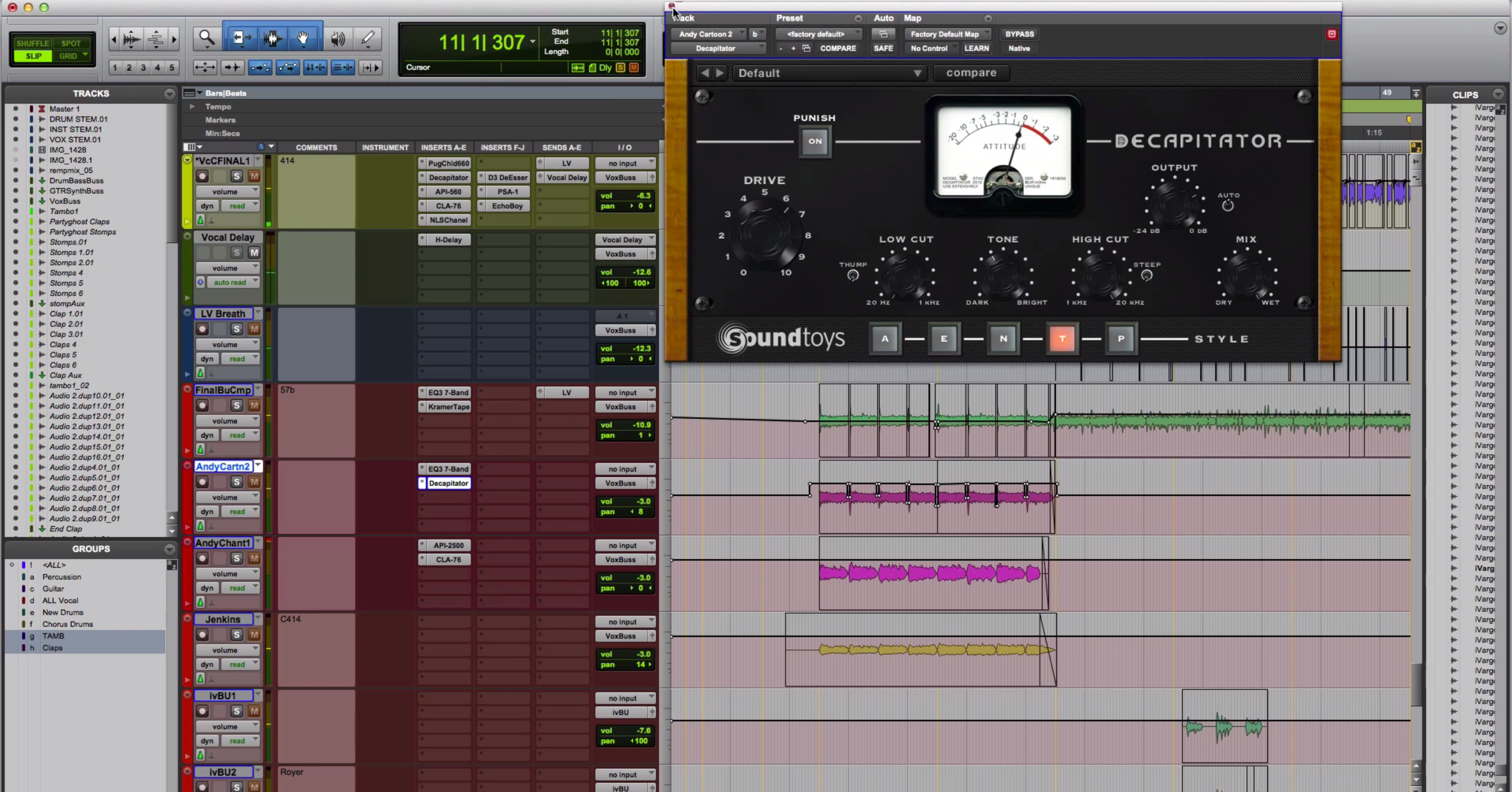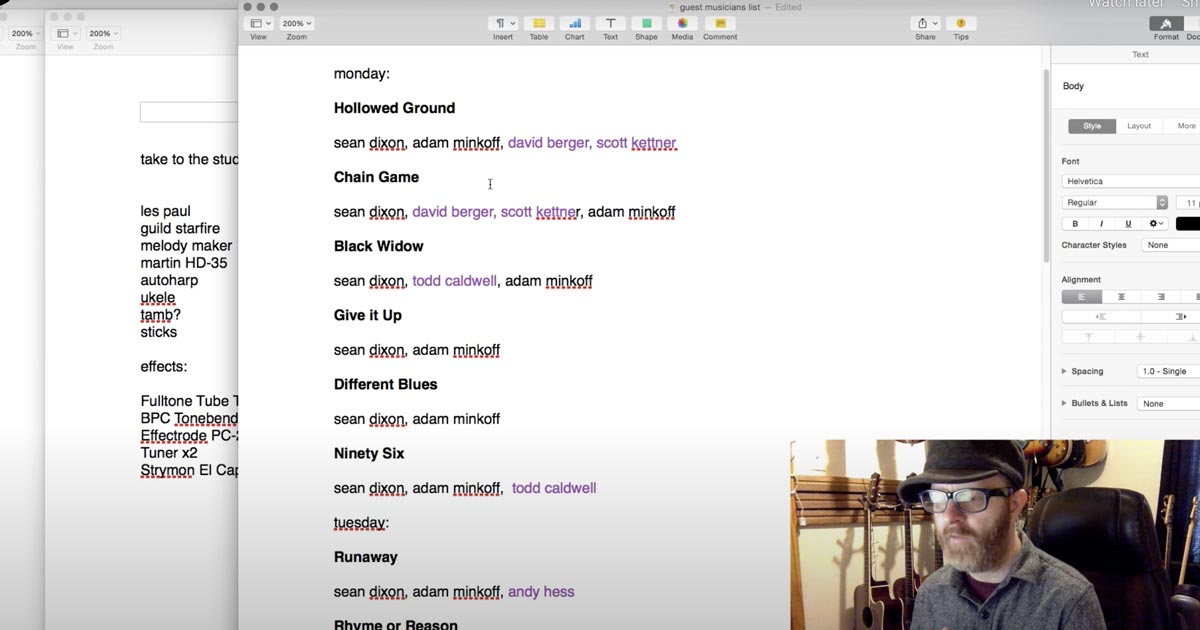11 Tips For Better Vocal Recording Sessions
Article Content
Vocal sessions can be a some of the most challenging moments of making a record. Not because vocalists are difficult (we all know they are. Let’s keep that to ourselves though), but because the human voice is affected greatly by environment and use.
Here are 11 tips to make your next session more consistent.
1. Speed Limit
We all love our coffee as a pick-me-upper. But what we might not realize is that caffeine dehydrates your vocal chords.
Dehydration is an enemy of vocalists. You should recommend every singer limits caffeine consumption either in soda, tea, energy drinks or coffee during tracking.
2. Boozehound
Alcohol also dehydrates the vocal chords.
Save the scotch for after the vocal tracking as a celebration. Whatever you think you gain in getting “loose”, you lose in stability.
Alcohol also numbs the vocal chords. This can prevent you from knowing if you’re doing damage. We all love a good party, but don’t let it affect your performance.
3. H2-“Woah”
Even if you’re not drinking caffeine or alcohol, you still need to keep drinking water.
Keep the hydration going. Always have extra bottles of water around or buy a Brita filter to clean tap water.
4. Voices Carry
I can go on about headphone mixes… Oh wait, I already did.
It’s vital that vocalists hear themselves very well. It’s also really important the sound is flattering. This means adding reverb and compression (aka makeup).
After you get your levels set — which should be fast, as singers can be restless — put the makeup on fast.
5. Put Me In Coach
Everybody is budget-aware these days and for good reason. But, if you can spare a little extra bread, having a talented vocal coach there can really save you time and strain.
It has nothing to do with a vocal coach giving you tips on the style of singing. Nobody is trying to kill your mojo. It has everything to do with making sure the singer’s voice always stays in a safe place. The vocal takes will be more consistent and the singer won’t wear out as fast.
Plus, if the vocalist is struggling, a vocal coach will know the dialogue to help out. They’re not there as a dictator, simply as support for “team artist.” I highly recommend this for less experienced singers on recording sessions.
6. Closing Time
Never book more than a 3-4 hour vocal session. Even 3-4 hours of singing is overkill. However, it’s not likely in any session that the vocalist will be singing the full 3-4 hours. Unless they are struggling, in which case I suggest you check out tip #5 again.
Voices get tired. The more exhausted a singer gets, the more they strain. This could lead to improper singing and damage. Voices are sensitive and always being used for talking and yelling at the younger generation.
If you’re overdubbing vocals as opposed to tracking live with a band, limit the session to one song a day. Split the vocal sessions up. Half of the day work on instrument overdubs or editing. The other half, work on vocals. You’re likely to get much better performances this way.
7. Wrap It Up
One can end up lost in a roundabout (who’s been stuck in these while driving around Europe?)
Singers will keep saying, “let’s do it again.” They may plow over perfectly good takes.
Here’s what I try to do: In the beginning, I’ll let them do 1-3 takes to get warmed up. After that, we listen after every take. This way they can keep dibs on what is working and if their mind is playing tricks on them.
It’s important to prevent destructive cycles.
8. I Crossed Out The Options
Don’t make a vocalist try different mics for an hour. You’ll burn them out.
You need to be good enough at your job that you can narrow down the mics to audition to about 3. You’re wasting valuable performance time. It’s not going to matter if the 10th mic you tried blew the rest out of the water if you’ll be capturing a strained performance.
Also, too much setup time can ice singers. You want things to flow and give them as little time to build up insecurities as possible.
9. Smokestack Lightning
I don’t think I need to tell you how bad smoking is for anyone, let alone singers.
If you do smoke, don’t think you can just quit a few days before a session and all will be good. Your voice will go through a change. My recommendation? Stop smoking. If not permanently, at least several weeks before tracking.
If you smoke recreational herbs (you know what I’m talking about Colorado), look into a vaporizer. Make sure to get a good vaporizer though. The cheap ones still burn a little. A good vaporizer is much kinder to your throat. Even with a vaporizer, I would recommend cleaning yourself up for sessions.
10. Cheat Sheet
Funny things happen in sessions. You can blank for no apparent reason.
You can prevent frustration by having a printed set of lyrics in front of the singer. That way, there is no guessing. Straight to the point.
11. Positive Vibrations
It seems really obvious, but refrain from negative comments.
If you’re not getting the performance you want, try to put the vocalist in a “happy” place via descriptions of colorful imagery. Use your imagination. Being negative and giving feedback from a hurtful tone is going to get you further from the end result you want.
—
These 11 tips should greatly improve your next vocal session. In fact, you may even be able to send autotune to the unemployment line.






